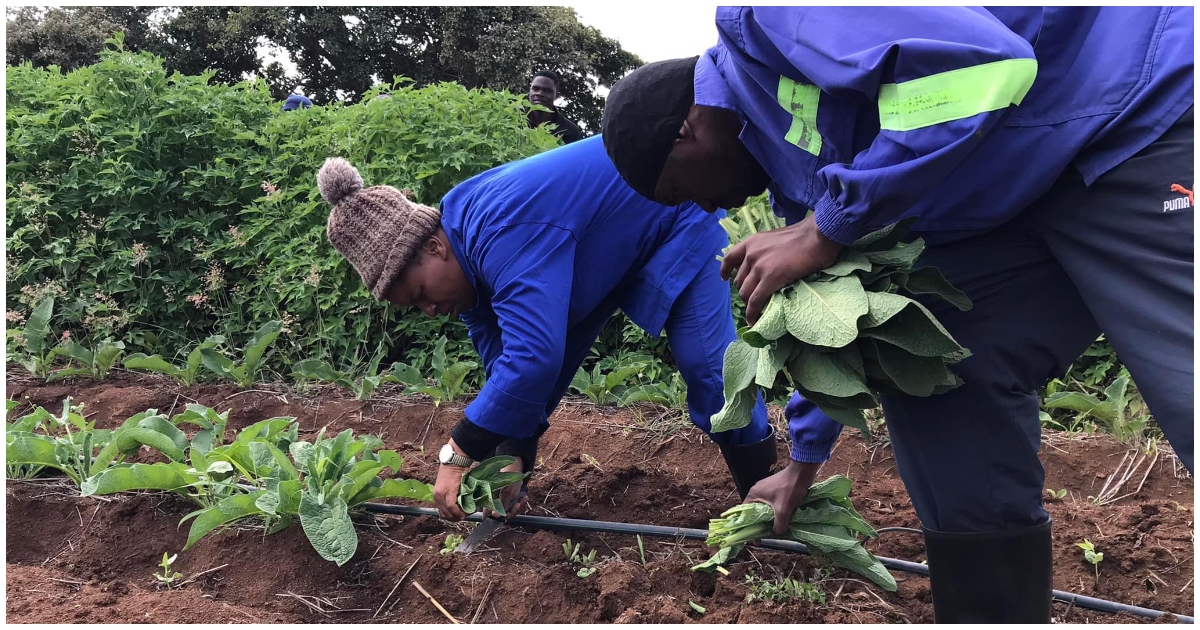Ghana Turns To Organic Fertilizer Amid Inorganic Fertilizer Crisis
- Ghana is making a big push toward organic fertilizers as the global crisis of inorganic fertilizer production hit
- Alliance for Green Revolution in Africa has launched an influential guideline on the production of organic fertilizer
- The guidelines will be a key tool for fertilizer inspectors and analysts who will regulate quality control of output products that are distributed to farmers
PAY ATTENTION: Click “See First” under the “Following” tab to see YEN.com.gh News on your News Feed!
Amid a global crisis of inorganic fertilizer production, Ghana is making a strong push toward large-scale organic fertilizer production for farmers.
Organic fertilizers contain plant or animal-based materials that are either a byproduct or end product of naturally occurring processes, such as animal manure and composted organic materials.

Source: UGC
The inorganic fertilizers, dominated by the chemicals nitrogen (N), phosphorus (P), and potassium (K), have for many centuries ensured food production.

Read also
Ghanaian man & team donate farming tools to 30 deprived towns to save Ghana from food shortage
However, recent sanctions on Russia, bad weather, and export cuts have fueled an inorganic fertilizer shortage across the globe, threatening food security.
PAY ATTENTION: Follow us on Instagram - get the most important news directly in your favourite app!
According to a National Geographic report, the inorganic fertilizer crisis is so bad farmers, fertilizer companies, and governments around the globe are scrambling to avert a drop in crop yields.
In Ghana, Alliance for Green Revolution in Africa (AGRA) has partnered with the Plant Protection and Regulatory Services Directorate (PPRSD) of the Ministry of Food and Agriculture (MoFA), to launch a groundbreaking guideline for organic fertilizer production.
At an event on Thursday, June 2, 2022, to outdoor the guidelines to farmer associations, fertilizer producers, and other stakeholders, AGRA noted that with the current inorganic fertilizer crisis, the production and use of organic fertilizer have been on the rise.
West Africa Regional Head of AGRA, Dr Lionel Axel Kadja, noted the organic fertilizer subsector in Ghana has been growing steadily for years now, prompting the setting up and operationalisation of large-scale production plants in the Greater Accra and Ashanti Regions.
He also noted that many individuals have been producing organic fertilizers on a small to medium scale for many years to farmers although some are unregulated.
He said the new organic fertilizer guidelines “will provide the minimum guidelines for the production and distribution of organic fertilizers, indicate the registration procedures and requirements for an entity to be classified as an organic fertilizer producer, the sampling and testing regime of organic fertilizers, and other ancillary guidelines for the sector.”

Source: UGC
The guidelines, Dr Kadja stressed, will be a key tool for fertilizer inspectors and analysts who will regulate quality control of output products that are distributed to farmers and will guarantee balanced and quality products in the Ghanaian market for smallholder farmers to use and for export.
Although there is an overarching law and regulations for the fertilizer sector, it is largely skewed toward the inorganic fertilizers which form a large percentage of the fertilizers used in Ghana.
The consultancy for the organic fertilizer guidelines was funded through USAID buy-in and was done through a participatory approach and consultations and the document has been finalized.
Ghana's Agric Minister, Tony Blair Hold Breakfast Meeting on Investment
Meanwhile, in a previous story, YEN.com.gh reported that Minister of Food and Agriculture, Dr Owusu Afriyie Akoto, has joined former UK Prime Minister Tony Blair at an Investment Breakfast meeting on Thursday, February 3.
The programme was organised by the Tony Blair Institute of Ghana (TBIG) as part of efforts to attract more investments into Ghana's agricultural sector.
Per a Class FM report, the Investment Breakfast aimed at giving a common platform to potential investors to leverage the networking opportunity and share ideas while exploring various areas of investment in the agricultural sector.
Source: YEN.com.gh


